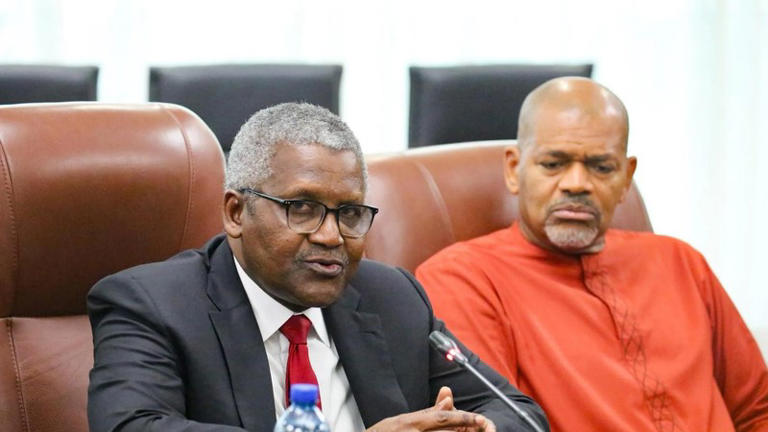Oil & Gas
NIGERIAN OIL MAGNATE ALIKO DANGOTE LEADS AS AFRICA’S ELITE HIT RECORD-BUSTING $105 BILLION FORTUNE.
JUMA SULEIMAN

Africa's wealthiest individuals saw a significant boost in their fortunes this year, with the combined net worth of the continent’s 22 billionaires reaching a record $105 billion (R1.9 trillion), up from $82.4 billion held by 20 individuals in 2024, according to the Forbes 2025 Africa Billionaires report. This surge in wealth comes despite ongoing challenges across the continent, including political instability and currency devaluation in several countries. South Africa leads with the most billionaires at seven, followed by Nigeria and Egypt with four each, Morocco with three, and one each from Algeria, Tanzania, and Zimbabwe.
At the top of the list is Nigerian industrialist Aliko Dangote, who retains the number one position for the 14th consecutive year. His net worth soared to $23.9 billion, largely driven by the valuation of his long-anticipated Lagos oil refinery, which is now contributing to Nigeria’s refined fuel exports. Dangote’s presence on the Bloomberg Billionaires Index also reflects his global influence, where he ranks 71st. His continued dominance underscores the impact of industrial investments and infrastructure development on wealth accumulation in Africa.
South Africa’s Johann Rupert remains the second wealthiest individual in Africa, with a 39% increase in his fortune, bringing it to $14 billion. Nigerian billionaire Femi Otedola also saw a major rise in his wealth, gaining over 30% as shares in his company, Geregu Power, performed strongly. Meanwhile, two previous billionaires—Moroccan real estate mogul Anas Sefrioui and South African investor Jannie Mouton—re-entered the list after a rebound in their main assets: Douja Promotion and Capitec Bank, respectively.
However, not all African billionaires experienced gains. Zimbabwean telecoms magnate Strive Masiyiwa saw his net worth decline by about 33% to $1.2 billion due to the country’s ongoing currency crisis. His situation highlights the vulnerability of even the wealthiest individuals to macroeconomic instability. Overall, the 2025 report reflects both resilience and volatility in Africa’s billionaire landscape, shaped by infrastructure expansion, stock market performance, and regional economic shifts.
